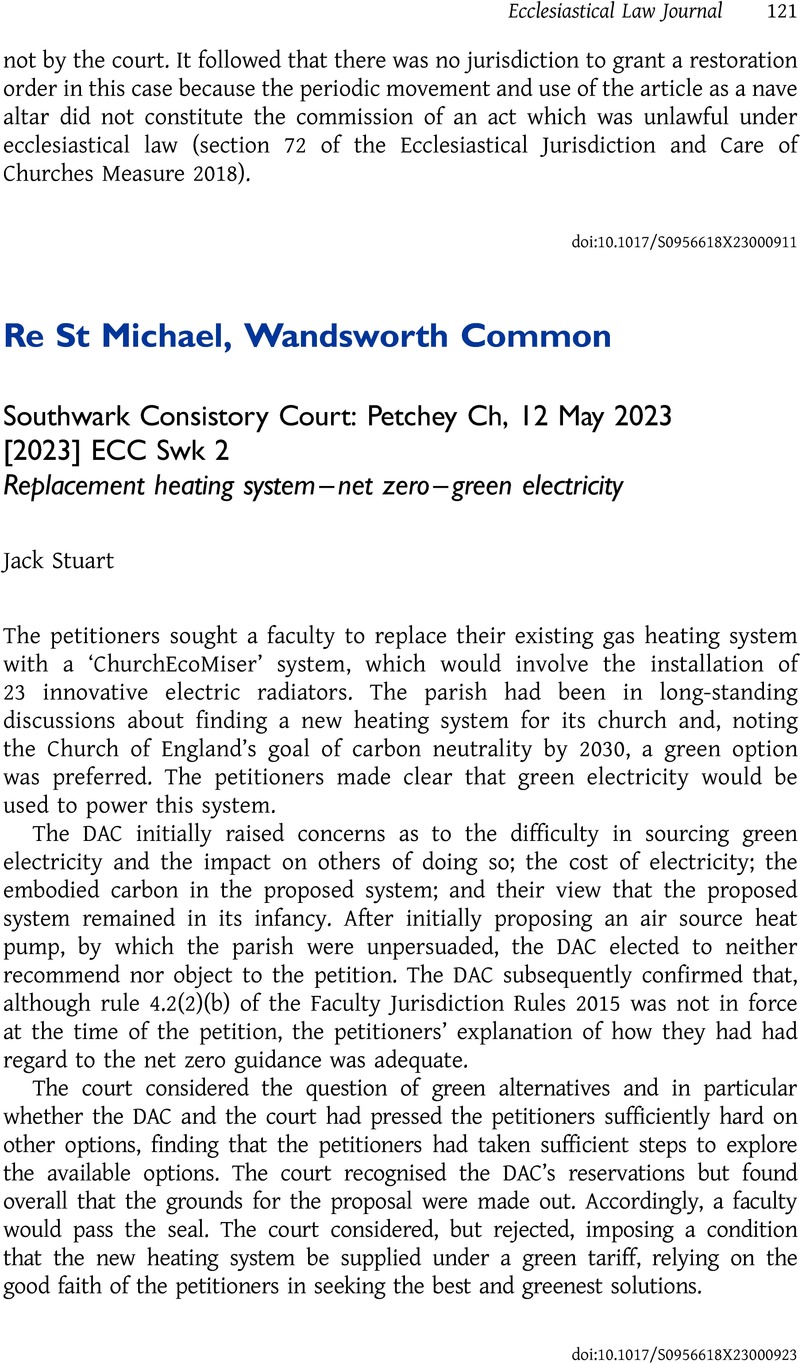No CrossRef data available.
Article contents
Re St Michael, Wandsworth Common
Southwark Consistory Court: Petchey Ch, 12 May 2023[2023] ECC Swk 2Replacement heating system – net zero – green electricity
Published online by Cambridge University Press: 18 January 2024
Abstract
An abstract is not available for this content so a preview has been provided. Please use the Get access link above for information on how to access this content.

- Type
- Case Notes
- Information
- Copyright
- Copyright © Ecclesiastical Law Society 2024



